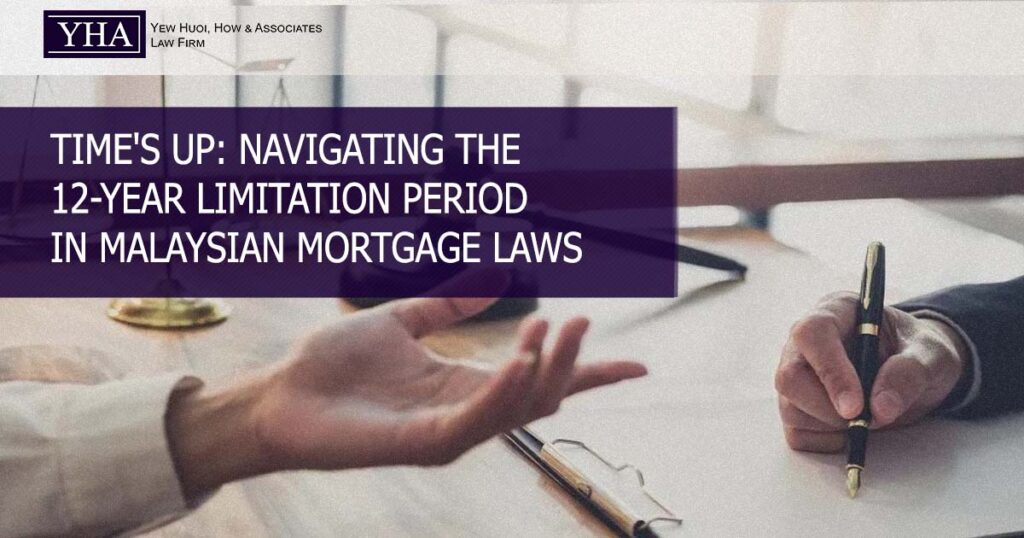In the intricate dance of land security and loan agreements, the ticking clock of the limitation period cannot be ignored. This excerpt delves into the critical understanding of how the 12-year limitation period, as prescribed by the Limitation Act 1953, plays a pivotal role in the enforcement of property charges in Malaysia. It elucidates the start time of this countdown and its legal implications, providing a comprehensive guide for both lenders and borrowers in navigating these time-sensitive waters.
Illustrative Scenario:
In 2001, ‘X’ (the chargor) used his land as collateral for a loan from Bank Y (the chargee). By 2008, X defaulted on the loan repayment, but it wasn’t until 2022 that Bank Y sought an order for sale. In this scenario, X can effectively argue that Bank Y’s claim is nullified by the 12-year statutory limitation period, implying that Bank Y has lost both its interest in the land and its right to enforce the charge through legal means.
Understanding the Limitation Period for Legal Actions in Malaysia:
The Limitation Act 1953 establishes clear timelines for initiating legal actions in Malaysia, preventing indefinite delays in exercising legal rights. This legislation specifies varying limitation periods for different kinds of legal claims, ensuring timely justice and the protection of rights.
Key Legal Issues and Their Implications:
Issue 1: Applicability of the 12-Year Limitation Period for Enforcing a Charge:
- Section 21(1) of the Limitation Act 1953 clearly applies a 12-year limitation period to actions involving the enforcement of a charge.
- This period commences from the date of the chargor’s default on repayment, not from the date of failure to address the default as specified in the National Land Code’s Form 16D issued by the chargee.
Issue 2: Chargee’s Rights Post the 12-Year Limitation Period:
Should the chargee fail to secure an order for sale within the 12-year limitation period, they lose the legal standing to enforce their registrable right or interest under the charge.
- In such cases, the court holds the authority to adjudicate matters of title or interest by the operation of law, as per Section 340(4)(b) of the National Land Code. This means the court can make a binding decision on the ownership or interest in the property, effectively recognizing the extinguishment of the chargee’s rights after the lapse of the limitation period.
Case in point:
- Thameez Nisha Hasseem (as the administrator of the estate of Bee Fathima @ dll, deceased) v Maybank Allied Bank Bhd [2023] 4 MLJ 145
- CIMB Bank Bhd v Sivadevi a/p Sivalingam [2020] 1 MLJ 583

